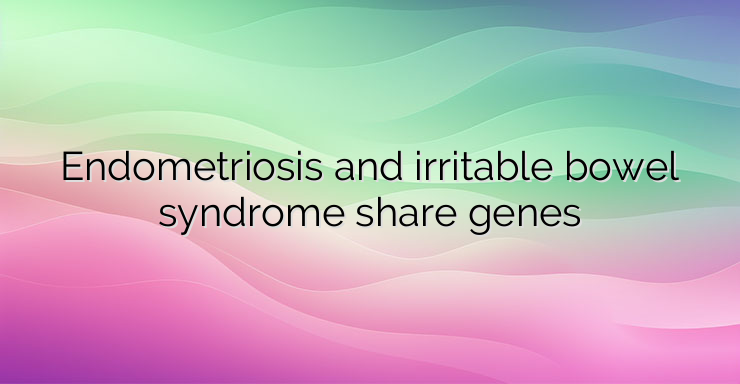New research by scientists at the University of Queensland has revealed a genetic link between endometriosis patients and irritable bowel syndrome. This may explain the frequent combination between the two diseases in some patients. The information used in the study was obtained from a large-scale biomedical database and research resource – UK Biobank. It contains anonymised genetic, lifestyle and health information from half a million UK voluntary participants. The UK Biobank database includes blood samples, imaging studies of cardiovascular and brain structures, as well as genetic data. The database is globally accessible to approved researchers who could use the information to conduct research of public interest. Endometriosis is a gynecological disease in which tissue similar to that on the inner lining of the uterus, the endometrium, appears in unusual areas of the body. It can cause severe pain in the pelvis and make it difficult to get pregnant. The disease can appear at the first menstruation and continue until menopause. After detailed analysis, the scientists revealed that patients with endometriosis shared genetic data with those suffering from irritable bowel syndrome. In addition, it has been found that the risk of disorders affecting the gastrointestinal tract in women with endometriosis is significantly higher. The most common gastrointestinal disorders in these patients are irritable bowel syndrome, peptic ulcer disease, and gastroesophageal reflux disease (GERD). Irritable bowel syndrome is a common condition that affects the digestive system. It causes symptoms such as stomach cramps, bloating, diarrhea and constipation. They usually come and go over time and can last for days, weeks or months. Peptic ulcer disease is characterized by a break in the inner lining of the gastrointestinal tract due to secretion of stomach acid or pepsin. It extends into the muscularis propria of the gastric epithelium. Usually, the disorder occurs in the stomach and the proximal part of the duodenum. Gastroesophageal reflux disease (GERD) is a common condition in which stomach acid backs up into the esophagus. It usually occurs as a result of weakening of the lower esophageal sphincter. Affected women have difficulty distinguishing the source of their pain, which can significantly delay individual diagnoses. For this reason, in all women with complaints of abdominal pain and gastrointestinal disorders, the diagnosis of endometriosis should be ruled out. Information about the peer-reviewed study was published in the journal Cell Reports Medicine. References: https://www.cell.com/cell-reports-medicine/fulltext/S2666-3791(23)00427-5 https://www.nhs.uk/conditions/irritable-bowel-syndrome-ibs/ https ://www.ncbi.nlm.nih.gov/books/NBK534792/ https://www.nhsinform.scot/illnesses-and-conditions/stomach-liver-and-gastrointestinal-tract/gastro-oesophageal-reflux-disease-gord/


Leave a Reply